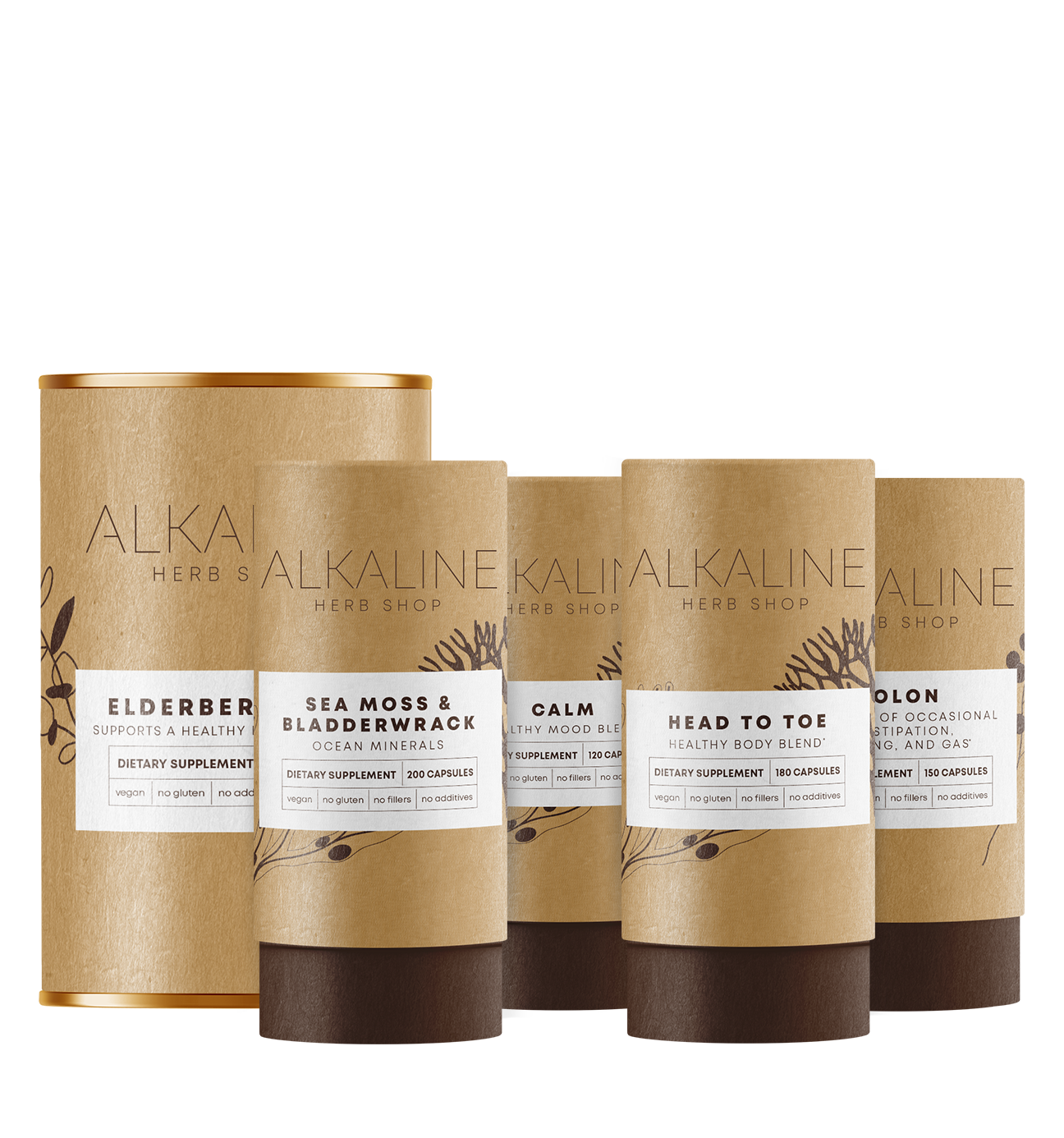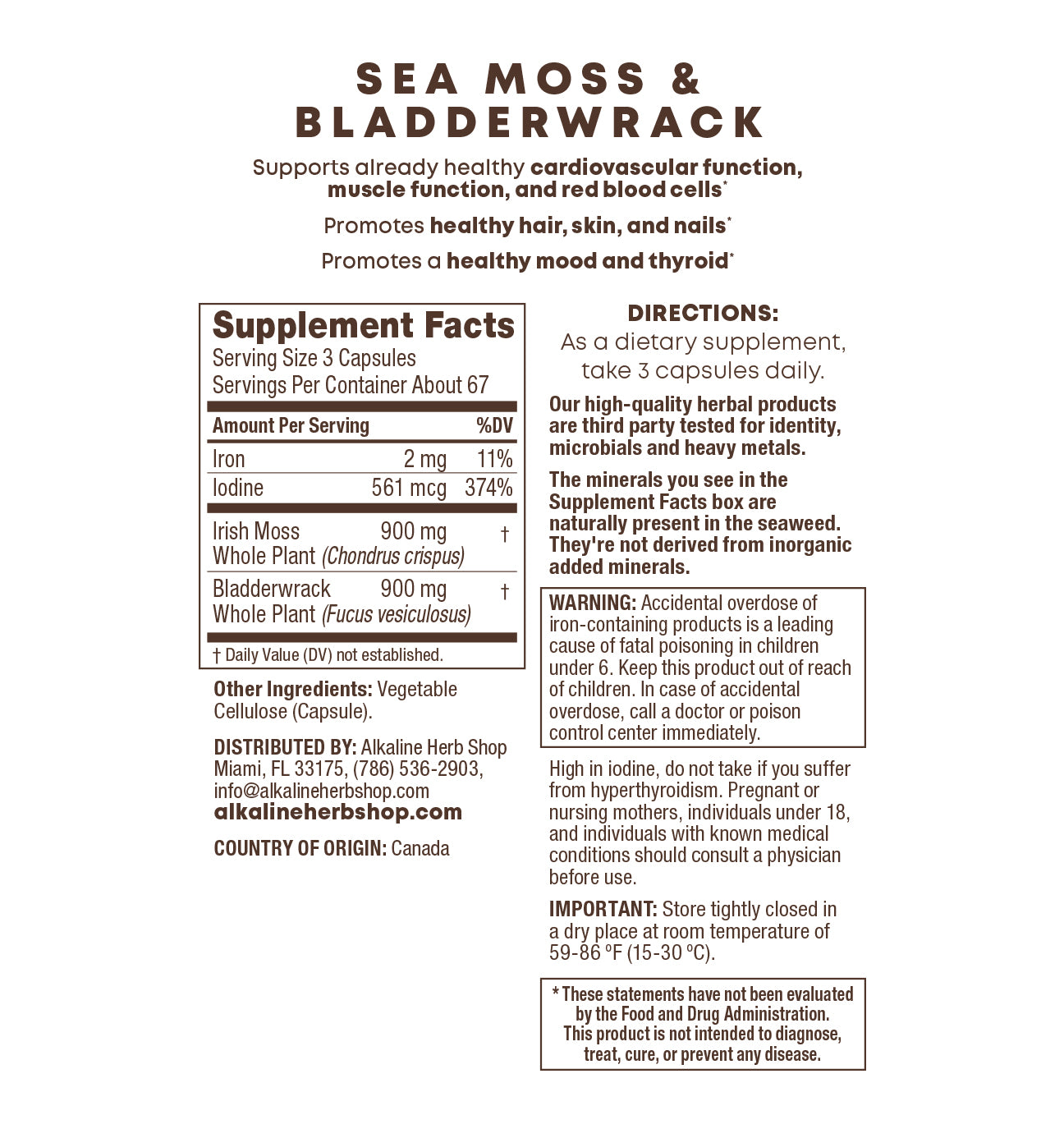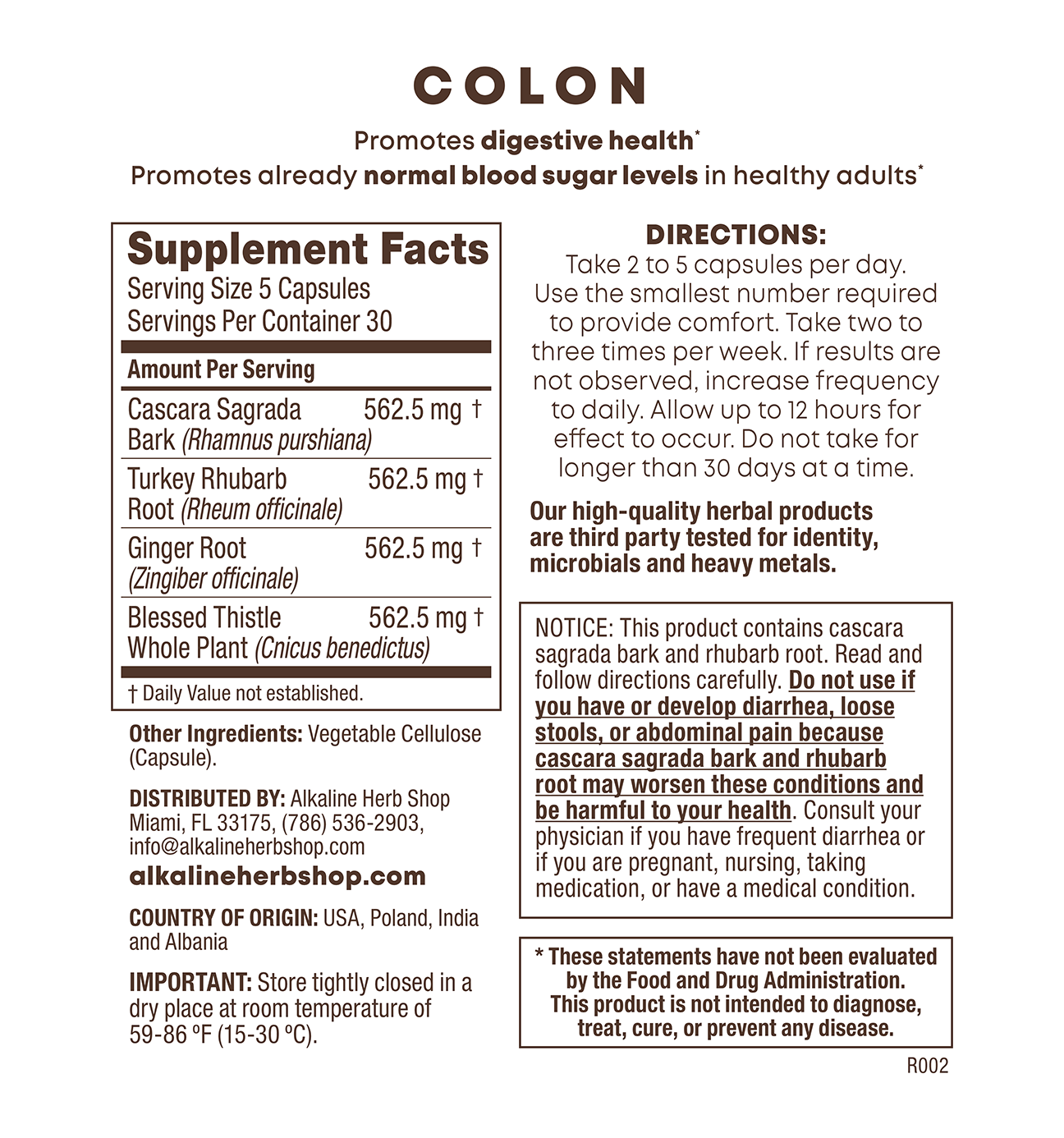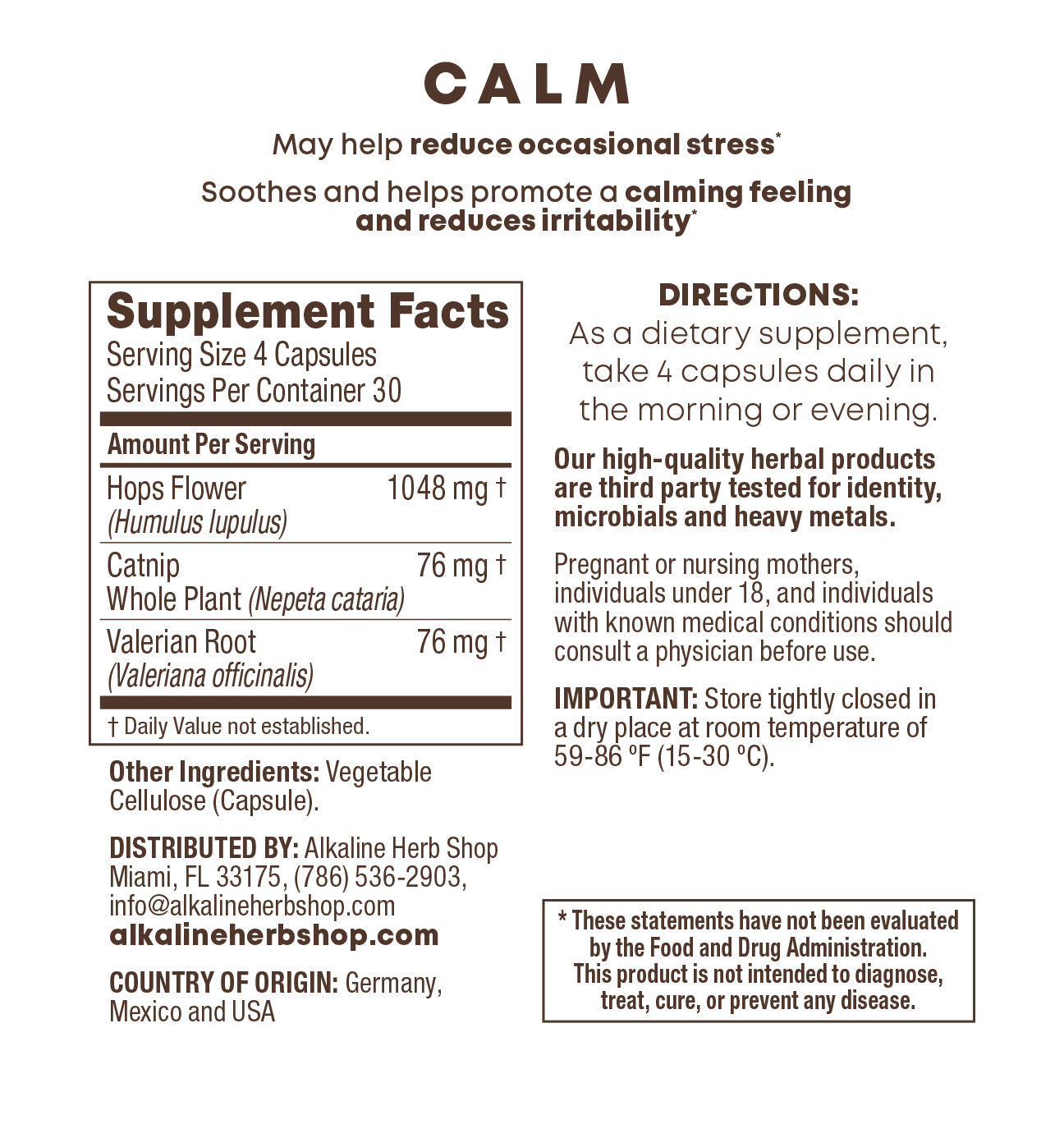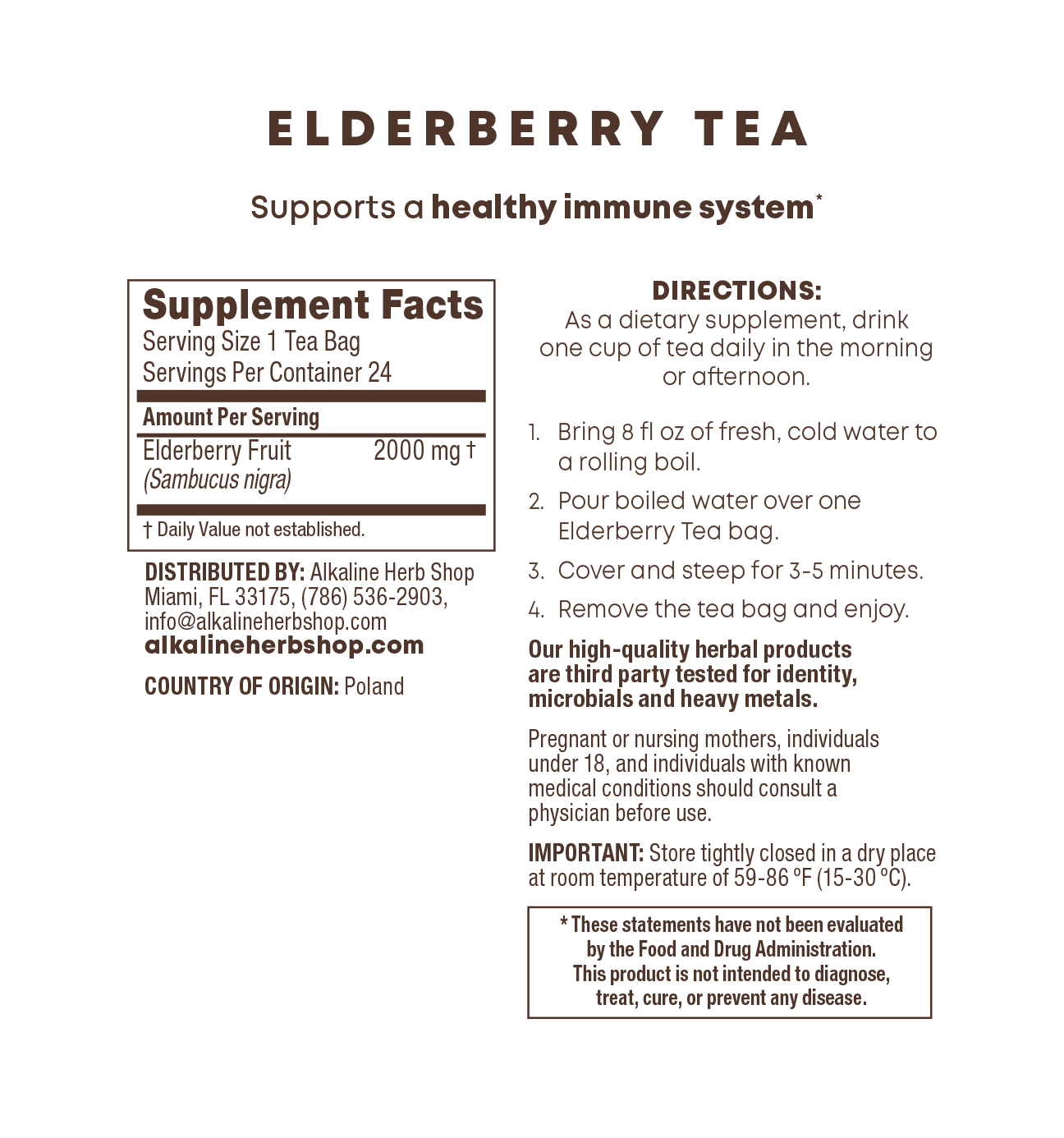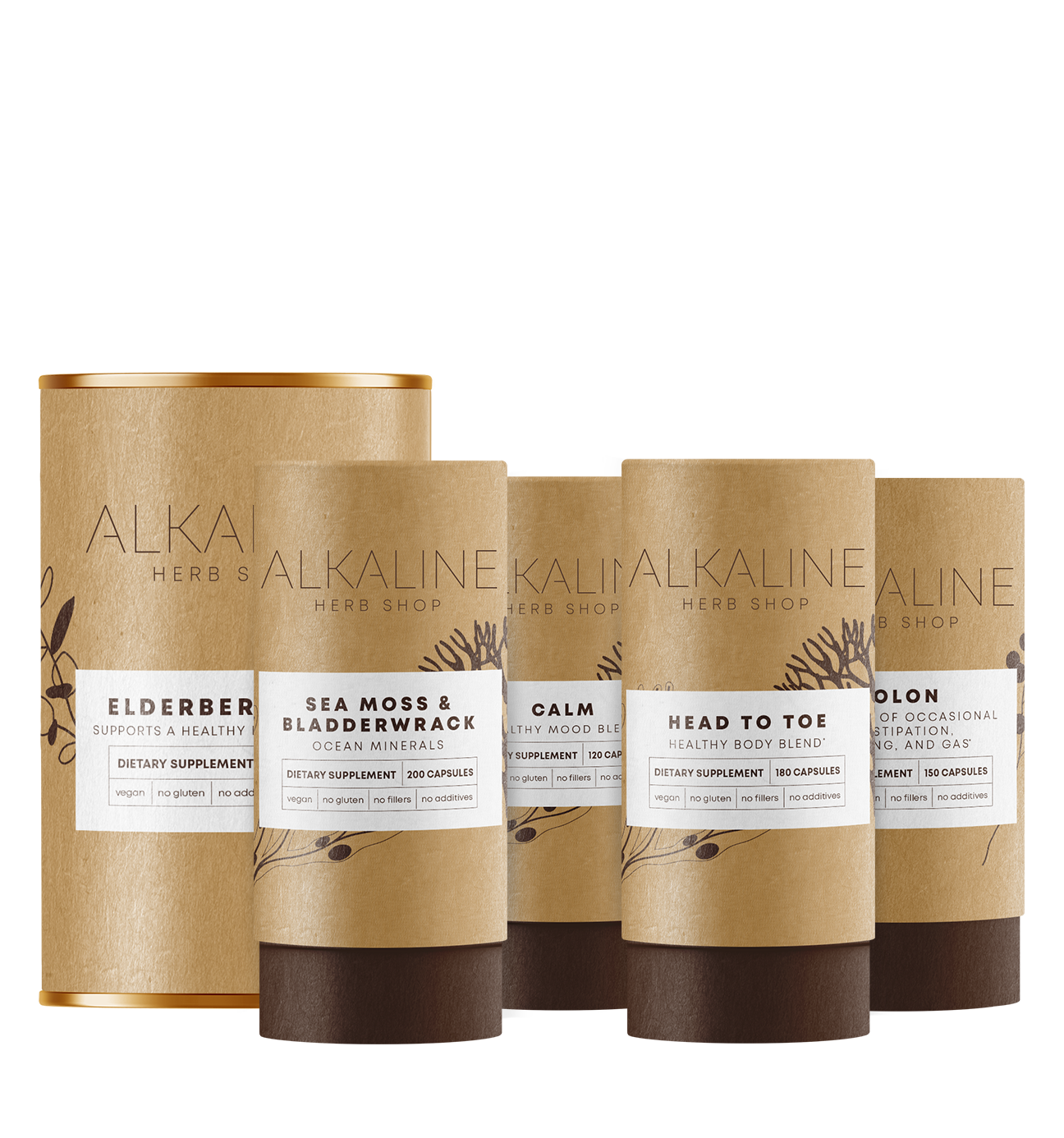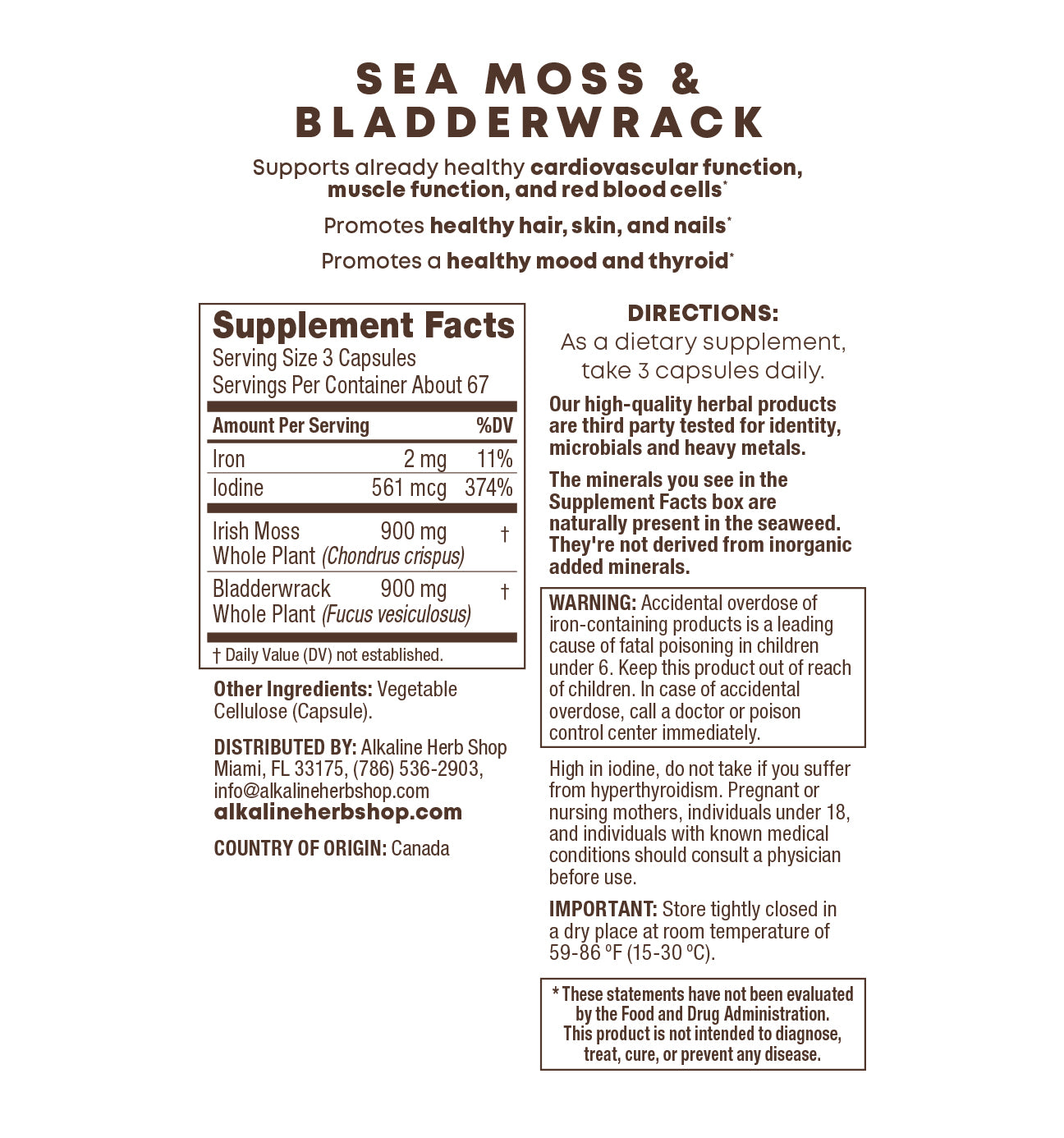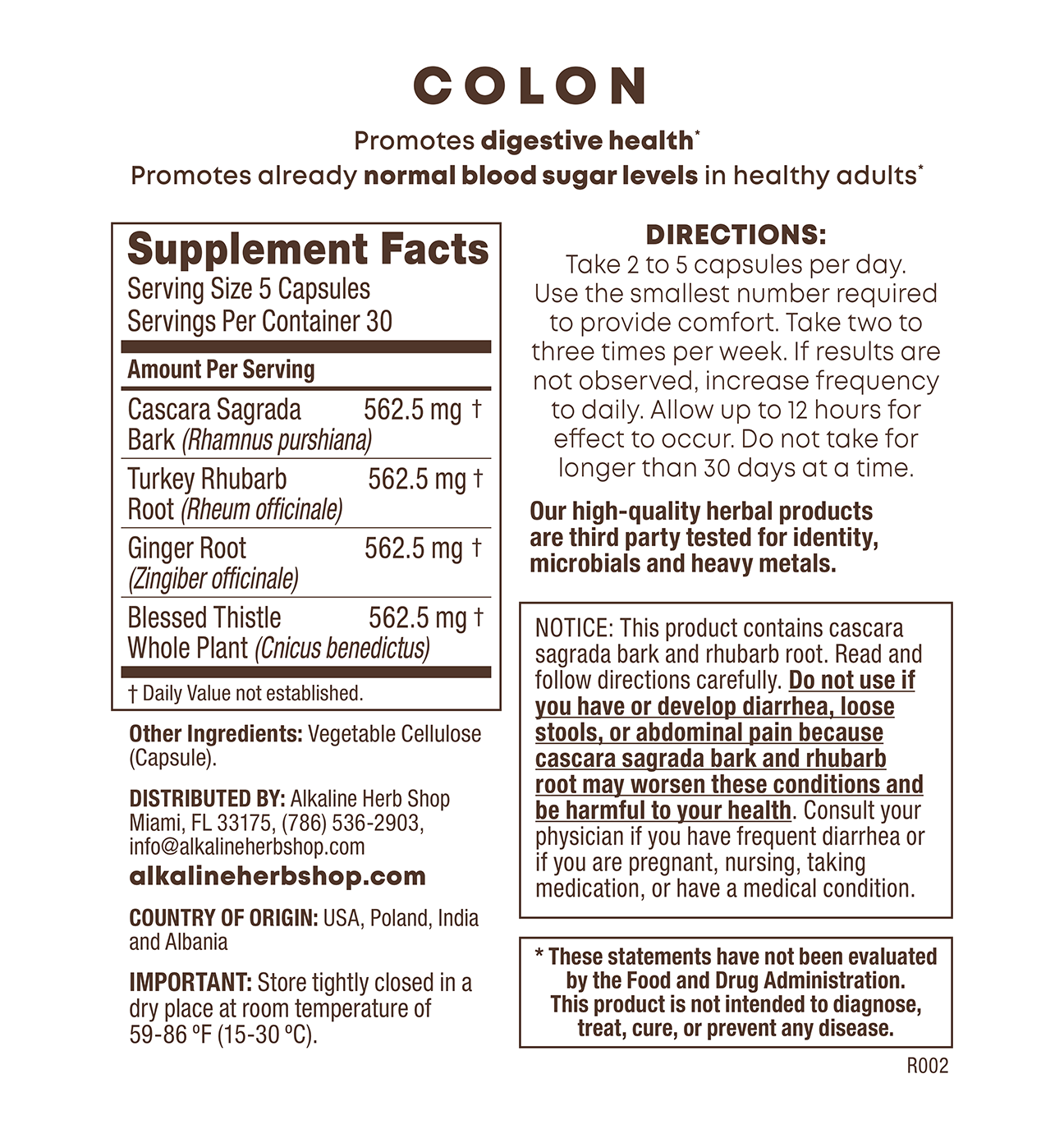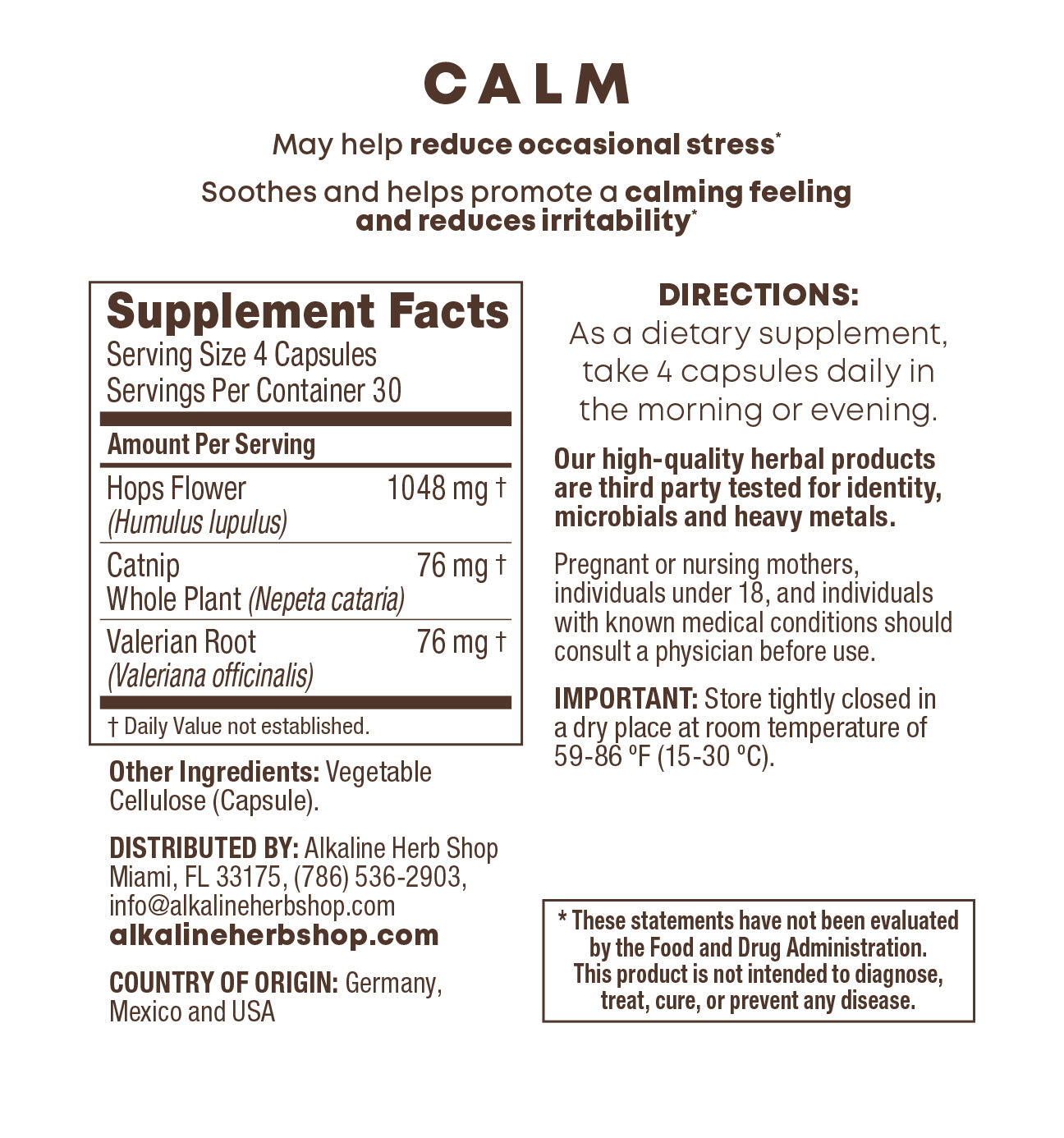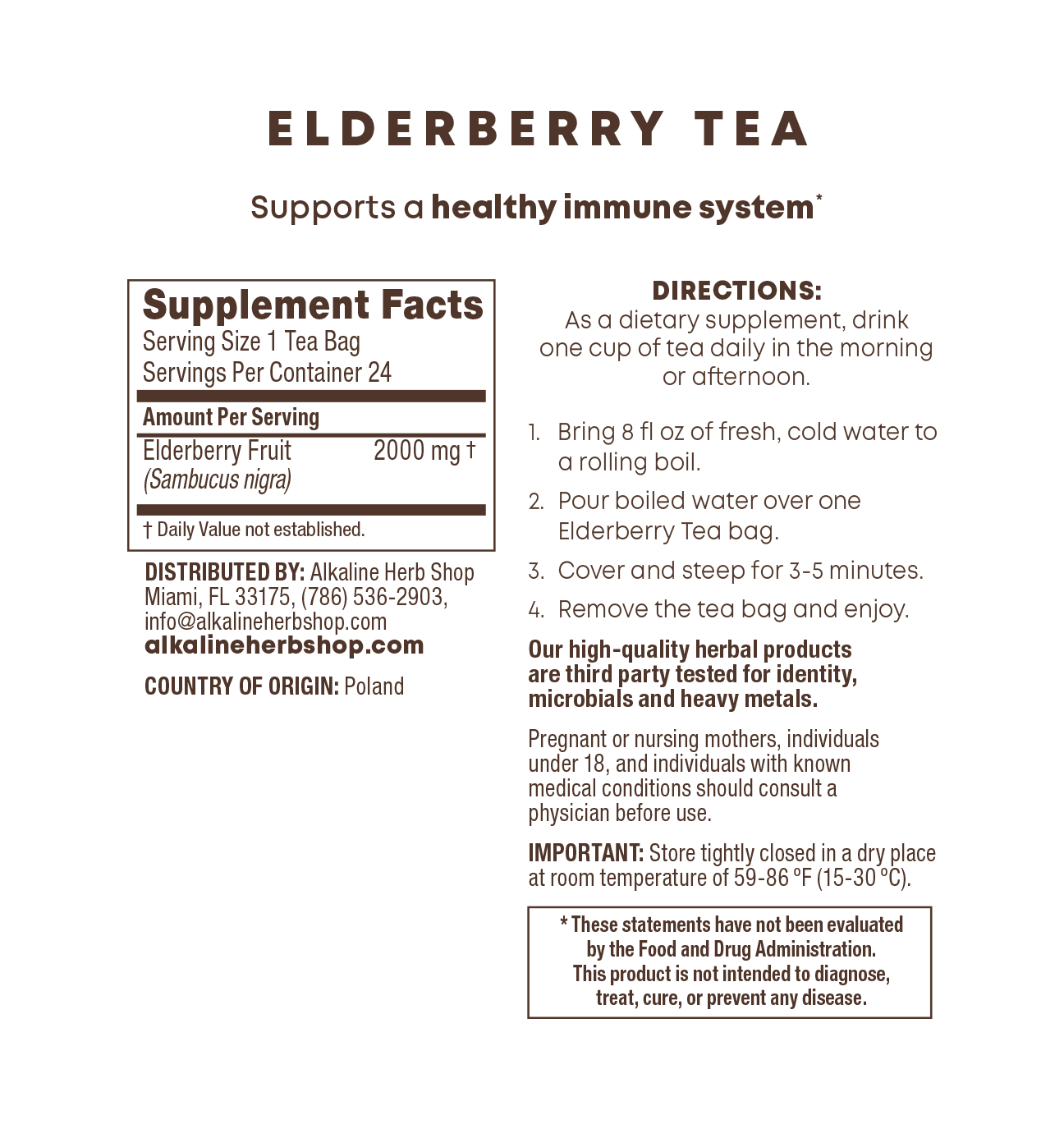Frequently Asked Questions
Sea Moss and Bladderwrack are two different species of seaweed. Sea moss is a type of red seaweed that grows in tidepools and rocky coasts. Bladderwrack (also known as black-tang, sea spirit, or sea oak) is a type of brown seaweed found along coasts.
No. Bladderwrack and Sea Moss are not the same thing, although they are similar. Both are seaweeds with the ability to provide similar benefits to the body, and both have a history of use in herbal medicine. Bladderwrack has a leathery feel to it, and sea moss is firmer. They grow in different areas.
Both Sea Moss and Bladderwrack can promote:
- Healthy thyroid
- Energy levels
- Positive mood
- Essential nerve function
- Heart health
- Probiotic benefits for direction
- Joint function
- Healthy skin
They both provide many essential vitamins and minerals, including calcium, iron, iodine, magnesium, zinc, selenium, and potassium.
There are a few notable differences that could impact you differently depending on your needs:
Bladderwrack contains higher levels of iodine, which helps support healthy thyroid function. Sea Moss contains higher levels of calcium to support healthy bone function and higher levels of iron to promote healthy skin and energy levels.
Yes, you can take up to one-quarter cup of Sea Moss gel per day, but the recommended dose is one or two tablespoons per day. (For capsules, follow the recommended dose on the package to avoid taking too much.)
Yes. Sea Moss is high in iodine. If you take too much, it can cause thyroid issues and have other negative impacts on your health.
Currently, there is no scientific evidence showing Sea Moss increases testosterone.
While Sea Moss and Bladderwrack may not directly cause you to lose weight, they might promote healthy weight loss.
Sea Moss contains citrulline-arginine. This compound is known to help stimulate metabolism and synthesize collagen.
Sea Moss and Bladderwrack high levels of iodine can help moderate thyroid hormones regulate the body metabolism.
The benefits of Sea Moss capsules are well-researched. Sea Moss is very high in many vitamins and minerals, such as potassium, calcium, iron, and iodine. If you suffer from an iodine deficiency or a deficiency in another vitamin or mineral found in Sea Moss, it might work to provide the nutrients you need. When taken for a specific benefit known to be provided by Sea Moss, it works.
Sea Moss typically comes in two forms—capsules and raw. Capsules can be taken with or without food. For raw Sea Moss, the best way to take it is to make Sea Moss gel and mix it into smoothies or juices. It can also be used as a thickener in deserts and soups. Trying to eat sea moss without mixing it into anything else is not recommended due to the strong seaweed flavor.
AlkalineHerbShop.com offers multiple options to purchase Sea Moss and Bladderwrack.
We use wildcrafted Chondrus Crispus Irish Moss sourced from protected waters for our capsules. Chondrus Crispus only grows in cold regions, it does not grow in warm tropical regions. Our Irish Moss grows naturally in the wild and is not farmed which is why we do not use Caribbean Sea Moss a lot of which tends to be farmed. It is common to find rocks and other ocean debris in our raw sea moss.
Sea moss that's grown in the wild will have a rugged, rough appearance. When sea moss is grown in a pool, it has a smoother, silkier look. These looks are very different, and that can help you spot sea moss that's not real. You naturally want sea moss that's truly grown in the sea, and not something that's cultivated in a pool. It's simply not the same.
In addition to the smoothness of your sea moss, you also want to take a look at the salt content. Authentic sea moss will have some salt, but shouldn't have a lot. Fake sea moss, or any that's grown in a pool, will generally have a lot more salt. You should be suspicious of any sea moss that claims to be authentic but is covered with salt.
Fake sea moss often looks more like noodles, and will feel slippery and slightly wet. That's a big difference from the chunky, stringy, dry feeling of authentic sea moss. The color can also matter, so take a close look at it. Real sea moss has a dark tan or slightly brown color, and can sometimes look golden.
In contrast, pool-grown or fake sea moss is yellowish or lighter in color, and doesn't have the same contrast and depth of color that its authentic counterpart does. You also won't find any hint or remnants of sand in fake sea moss, since sand would come from the ocean.
Any sea moss that has a chemical smell is very likely fake. Real sea moss smells like the ocean, or fish. You can tell that it came out of the sea, and it shouldn't smell processed or chemically treated in any way. It should also feel dry, and have a mesh or spongy appearance that's not uniform.
There is some discrepancy between the iodine FDA daily recommended intake and the upper limit (e.g., FDA recommended daily intake is 150mcg and an NIH study says the upper limit is 1,100mcg of iodine.) Studies show that people in Japan consume roughly 1,000-3,000mcg of iodine per day based on their diet and are one of the top 10 healthiest countries in the world with a life expectancy of 84 years.
Like many elements of the aquatic world, sea moss has long been imbued with a sense of mystery.
For all their diversity, many sea mosses are similar in appearance with a common frilly look and a tendency to be found on rocks and rock pools along the shore. They are edible and grow naturally along rocky coasts like the northern Atlantic ocean and Europe.
While sea moss is often red, it can also grow in a wide range of other colors depending on the particulars of water temperatures and the local climate.
- Over the centuries, many cultures have embraced different uses of sea moss, it’s even been used in Chinese medicine for thousands of years. There is some evidence that people around the world have leveraged the benefits of sea moss for as long back as 14,000 years, or even as far back as 600BC in some parts of China.
- You may be interested to learn that sea moss was regarded as a core source of nutrition in the British Isles around the same period. Of note, it was also cultivated near the Irish coast as well, which is where the term “sea plant” was first coined.
- It has especially tended to be used by cultures where it is found in abundance, with local communities adding it to food or used as a supplement given its abundance of vitamins and minerals. An example is using sea moss as a thickener for Irish pudding.
- It would also go on to play an important role in Ireland during the Irish Potato Famine that dominated the 1800s, when it emerged as a sorely needed source of nutrients. Many Irish citizens, desperate for affordable nutrition options, would add red seaweed to warmed milk in order to create a nutrient-enhanced beverage to help them contend with the shortage of edible options. This sea moss drink happens to still be drank by some across Ireland and the Caribbean to this day.





